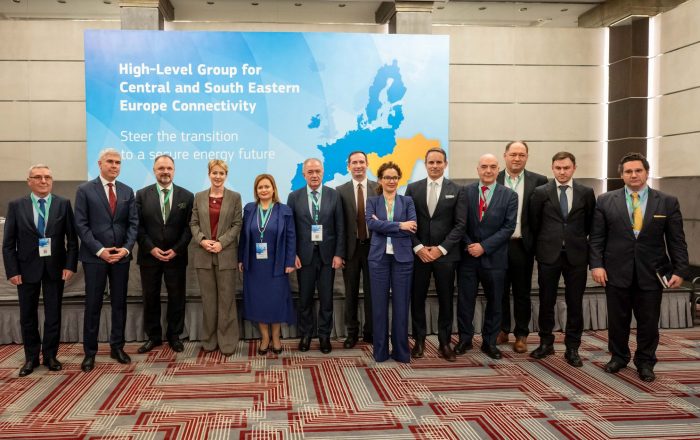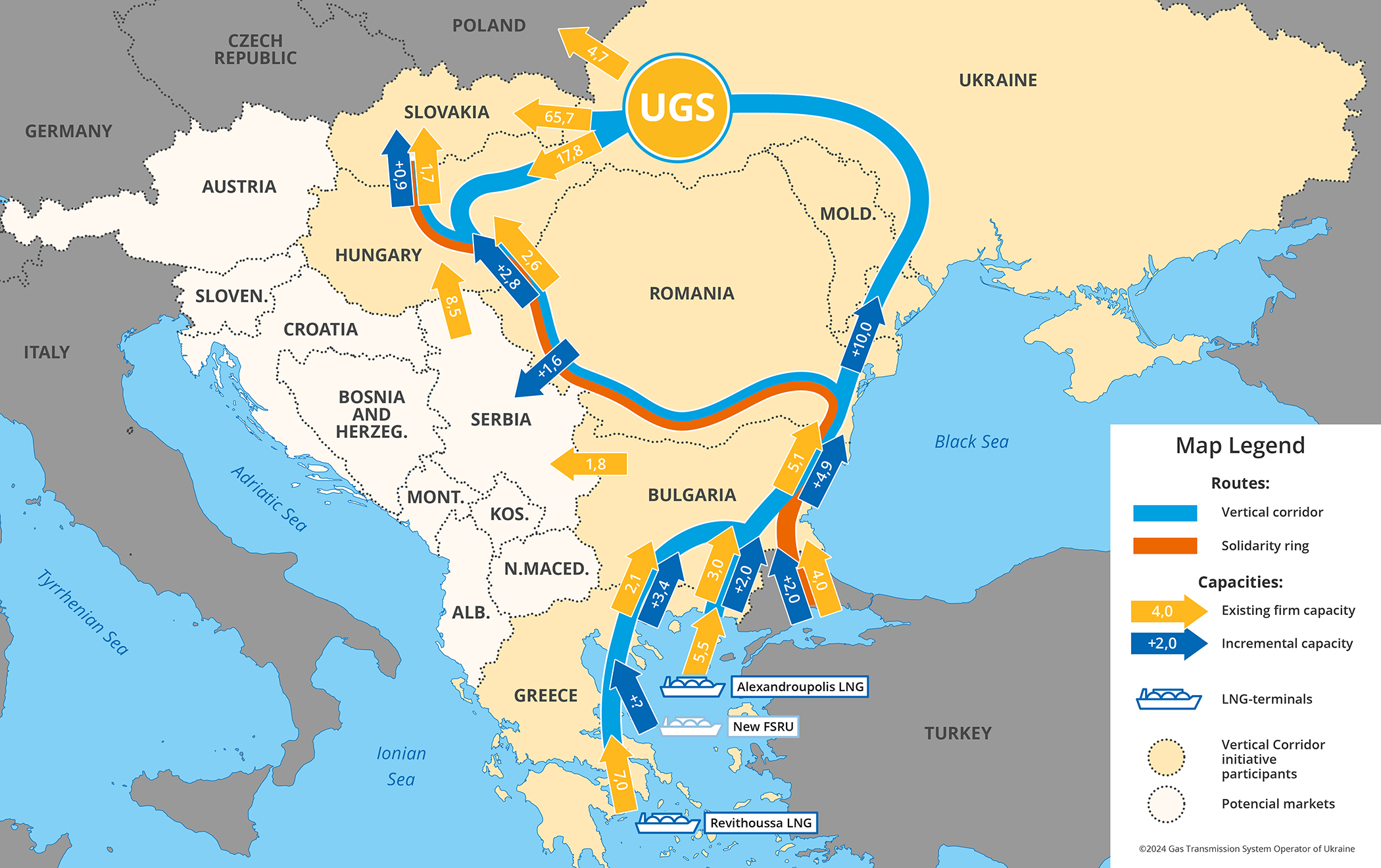The Memorandum of Cooperation signed in the framework of CESEC establishes the importatnt steps towards security of supply to CESEC region.
Athens, 19 January 2024 – An important step towards the security of supply for Central, South Eastern Europe, Moldova and Ukraine was taken on Friday, January 19, 2024, by the natural gas infrastructure operators, participating in the Vertical Corridor initiative, with the Memorandum of Understanding (MoU), on the sidelines of the Ministerial meeting of the High Level Group on Central and South Eastern Europe Energy Connectivity (CESEC) held in Athens.
This MoU seals the intensive cooperation developed by gas and LNG transmission system operators from Greece, such as DESFA and Gastrade, Bulgaria (ICGB, Bulgartrangaz), Romania (Transgaz), Hungary (FGSZ) and Slovakia (EUStream), following the meeting organized at the initiative of DESFA last September in Thessaloniki, in order to respond in a coordinated manner to the need to strengthen energy security and further diversify sources of supply.
The full activation of the Vertical Corridor, through the appropriate upgrading of the networks of the above countries, will allow the transport of gas from the South to North and vice versa, through European natural gas and LNG transmission systems, leveraging the enhanced capabilities of the new and under development FSRUs in the area. This potential can be further extended by the use of said infrastructures for renewable gases and hydrogen.
The Operators signing the MoU express their commitment to promote PCI and other necessary projects, jointly or individually, for the activation of the Vertical Corridor, underlining at the same time their intention to support each other in securing funding from European and other funding sources for these projects. They also agree to seek, where appropriate, the facilitation and guidance of the European Commission.
As for the next steps, the participants prioritize their coordination, according to market-based solutions and European legislation, as the best way forward. In this context, they agree to carry out simultaneously, in July 2024, one year earlier than the foreseen schedule, a binding market test for capacity allocation at their respective interconnection points, according to the CAM Regulation (EU) of the European Commission. Then, based on user interest, they will identify and size the most appropriate and targeted capacity expansion projects needed to meet demand along the Vertical Corridor route.
«The reliability and stability of Ukraine’s gas transmission system was confirmed by an independent international stress test, as well as by a two-fold increase in gas transportation from Europe (up to 4.3 bcm), if compared to 2022. Thanks to the participation in the Vertical Corridor initiative, we expect to supply over 7 bcm of gas from Romania to Central Europe a year additionally. Together with the operator of Moldova’s GTS and national regulators, GTSOU is currently working on the introduction of attractive conditions for the use of additional capacities of the Trans-Balkan Corridor totaling at 6 mcm a day as early as in 2024,” Dmytro Lyppa, General Director of the GTS Operator of Ukraine, noted.
On the occasion of the signing, the CEO of DESFA, Maria Rita Galli, stated: “With today’s signing of the Memorandum of Understanding, the operators of Slovakia, Moldova, and Ukraine are joining forces with the rest of the operators in the region to realize the vision of creating a ‘Vertical Corridor’ for the transmission of natural gas from Greece to Ukraine. In today’s ever-changing energy landscape, working together to create flexible regional gas systems has emerged as a top priority. The coordinated development of the systems and interconnection capabilities of the countries participating in the ‘Vertical Corridor’ initiative will significantly contribute to strengthening the security of supply and storage capabilities of all countries, further diversifying sources of supply, and enabling the overall optimization of their infrastructures. We look forward to working together with our partners to accelerate the interconnection of the region’s natural gas markets, thereby strengthening the long-term security of supply, not only for the region but for Europe as a whole.”

